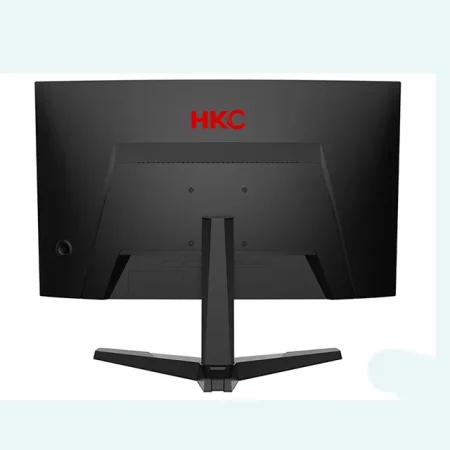Remote work in Africa’s tech industry is growing fast, offering opportunities in software development, fintech, AI, and more. With a young, skilled workforce and improving digital infrastructure, African professionals are connecting with global employers. Here’s what you need to know:
- Top Cities: Lagos, Nairobi, Cape Town, Cairo, and Kigali are key hubs for remote tech talent.
- Popular Platforms: Use sites like Tech In Africa, Arc.dev, LinkedIn, and Wellfound to find jobs.
- Salary Ranges: Monthly earnings vary by country and role:
- Nigeria: $500–$2,000
- Kenya: $600–$2,200
- South Africa: $1,500–$3,000
- Egypt: $500–$1,800
- Ghana: $400–$1,500
- Rwanda: $600–$2,000
- Challenges: Internet gaps, payment issues, and time zone management can complicate remote work.
To succeed, focus on high-demand skills (e.g., AI, cybersecurity), build a strong portfolio, and use multiple job platforms. Remote work in African tech is creating new paths for career growth and global collaboration.
How to Land High-Paying Remote Tech Jobs from Africa in 2025 🌍
Best Platforms and Networks for Finding Remote Jobs in African Tech
With remote work becoming a significant force in Africa’s tech scene, finding the right job platform is key. As the continent embraces digital transformation, these platforms provide a gateway to competitive remote roles, both locally and globally.
Some platforms are tailored specifically to Africa’s tech ecosystem, while others connect professionals to international markets. Knowing what each platform offers can help you focus your job search and land opportunities that align with your career goals.
Top Job Boards and Platforms
Tech In Africa
This platform is dedicated to African tech professionals looking for remote roles. It highlights positions from startups, fintechs, and established companies across the continent. By leveraging its deep understanding of the regional market, Tech In Africa connects African talent with employers actively seeking local expertise.
Wellfound (formerly AngelList Talent)
Wellfound is a go-to platform for startup enthusiasts. It connects professionals with early-stage companies and provides detailed insights like funding status and team composition. If you’re aiming to break into the startup world, this platform offers a solid starting point.
Arc.dev
Arc.dev caters to developers, focusing on those with proven technical skills. Candidates undergo assessments, helping them stand out and access higher-quality opportunities. The platform connects developers with companies across North America and Europe, offering roles with competitive pay.
Jobgether
Jobgether emphasizes matching professionals with companies that value strong remote collaboration. For those who prioritize team dynamics and workplace culture, this platform can offer tailored opportunities.
Dynamite Jobs
Dynamite Jobs pulls remote job listings directly from company websites, often before they appear on larger job boards. This early access can give you a competitive edge in finding unique opportunities.
RemoteOK and We Work Remotely
Both platforms feature extensive remote job listings across industries. Although they cast a wide net, applying filters can help you zero in on roles that align with the African tech market.
FlexJobs
FlexJobs operates on a subscription model and focuses on vetted job listings. While it requires a fee, the platform reduces the noise of less relevant postings, making it easier to find legitimate remote work opportunities.
LinkedIn
LinkedIn remains one of the most effective tools for networking and job searching. Its job search features and active recruiter presence make it a valuable resource for African professionals seeking remote roles.
How to Choose the Right Platform
The best platform for you depends on your career stage, skill set, and preferred work environment. For example:
- Early-career professionals: Platforms like Wellfound and Tech In Africa are ideal for connecting with startups that often offer mentorship and are open to hiring emerging talent.
- Experienced developers: Sites like Arc.dev and Toptal, which emphasize rigorous vetting, can help you stand out and connect with companies offering competitive salaries and established remote work practices.
- Specialized fields: If your expertise lies in areas like fintech or blockchain, Tech In Africa and LinkedIn can be particularly useful as these industries continue to expand rapidly.
You should also consider the competition on each platform. Larger platforms tend to attract more applicants per job posting, while smaller, niche platforms may offer a more focused audience for your skills. Additionally, think about geographic preferences. Some platforms have a global reach, while others are more regionally focused, which can help you align your search with your desired work environment.
Another factor to weigh is how each platform handles payments and contracts. Some manage these processes internally, simplifying administrative tasks, while others leave it up to you and your employer, offering more flexibility.
Using a combination of 2–3 platforms can be an effective strategy. This approach allows you to engage deeply with each platform and better understand what employers are looking for. To stay ahead, set up job alerts so you’re notified as soon as new roles are posted – remote positions, after all, tend to get snapped up quickly.
Top African Countries for Remote Tech Talent
Africa’s tech scene is on the rise, with several countries stepping up as key players in the world of remote work. These nations are building thriving ecosystems thanks to growing investments, supportive government policies, and a youthful, tech-driven population. With a majority of its population being young, Africa is shaping the global remote work market in exciting ways.
In 2021 alone, startups across the continent attracted over $4 billion in funding, and Africa produces more than 500,000 tech graduates each year. Sub-Saharan Africa also boasts around eight million Coursera learners, growing 20% annually, with 65% of them adopting mobile-based learning.
Major Tech Hubs Across Africa
Nigeria leads the pack as Africa’s largest tech market, with Lagos standing tall as a major startup hub. The country captures nearly 40% of Africa’s fintech funding, driven by its vast domestic market and a population exceeding 200 million. Akinbode Roberts, CEO of DataLeum, highlights the city’s potential:
“Lagos is a fertile ground for innovation, driven by local financial needs and its youthful talent pool.”
However, Nigerian startups still face hurdles, particularly when it comes to securing funding and addressing a gap in skilled tech professionals.
Kenya, often called “Silicon Savannah”, has been a trailblazer in tech innovation. Its groundbreaking M-Pesa mobile money platform revolutionized financial transactions, setting the stage for fintech advancements. Nairobi has become a magnet for funding, hosting startups in industries like fintech, energy, health, and education. Despite challenges in securing consistent funding, Kenya remains a hotspot for launching new tech ventures.
South Africa stands out for its successful startup exits, with Cape Town frequently dubbed the “startup capital.” The country benefits from advanced infrastructure and a well-established financial system that supports tech growth. Impressively, 93% of South African companies are actively running AI programs, showcasing their commitment to cutting-edge technologies.
Egypt is quickly becoming a prominent tech hub, with Cairo ranking among the top cities in Africa for startup funding. The country has implemented comprehensive AI policies and continues to attract international investment in its growing tech sector.
Ghana has emerged as a key tech player in West Africa, thanks to its strategic AI policies and focus on building digital infrastructure. The government is also creating regulatory frameworks to support the growth of tech companies.
Rwanda has established itself as a forward-thinking destination for tech, driven by proactive government policies. Early adoption of AI strategies and investments in digital infrastructure have positioned Rwanda as a competitive option for tech companies. Its business-friendly environment and central location make it appealing to both local and international firms.
Each of these hubs offers unique opportunities, shaped by their market size, technical focus, infrastructure, and time zone alignment – factors that significantly influence remote work prospects.
Comparing Locations for Remote Work Opportunities
Here’s a closer look at how Africa’s top tech hubs stack up when it comes to remote work opportunities:
| Country | Key Strengths | Time Zone | Primary Tech Focus | Infrastructure Level |
|---|---|---|---|---|
| Nigeria | Largest market, fintech leader, vast talent pool | GMT+1 | Fintech, e-commerce, digital payments | Moderate to Good |
| Kenya | Mobile money pioneer, vibrant startup ecosystem | GMT+3 | Fintech, agritech, healthtech, climate tech | Good |
| South Africa | Strong track record for exits, advanced infrastructure | GMT+2 | Fintech, AI, enterprise software | Excellent |
| Egypt | Large market, government backing, strategic location | GMT+2 | Software development, AI, telecommunications | Good |
| Ghana | Stable economy, English-speaking workforce, supportive policies | GMT+0 | Fintech, software development | Moderate |
| Rwanda | Business-friendly policies, strong government support | GMT+2 | Digital services, software development | Good |
Time zone compatibility is a critical factor for remote work. Ghana aligns perfectly with GMT, making it ideal for employers in Europe, while Kenya (GMT+3) serves clients in the Middle East and Europe effectively. English proficiency is another key advantage, with countries like Nigeria, Kenya, South Africa, and Ghana offering strong English-speaking talent pools.
Infrastructure varies widely. South Africa leads with reliable internet and power, while Nigeria and Ghana are working to improve their digital infrastructure. Government support also plays a crucial role – countries like Rwanda, Egypt, and Kenya have adopted AI strategies to drive innovation.
Cost advantages in these regions are another major draw, allowing remote professionals to offer competitive rates without sacrificing quality. As Tom Jackson, co-founder of Disrupt Africa, notes:
“The bigger the city, the better the infrastructure, the more universities, the better the standard of living, the more likely it is to be a ‘startup capital’”.
Each country has its own area of expertise. Nigeria dominates fintech, Kenya excels in mobile and agritech, South Africa leads in AI and enterprise solutions, and Egypt focuses on software development and telecommunications. Understanding these strengths helps remote workers align their skills with the right opportunities, ensuring their success in Africa’s growing tech landscape.
sbb-itb-dd089af
Salary Ranges and Market Trends in Remote African Tech Jobs
As Africa’s remote tech market continues to grow, understanding salary trends becomes increasingly important. Remote tech salaries in Africa offer a mix of skilled talent and competitive costs, making the region an attractive option for global employers.
Salary Data by Job Type and Experience Level
Salaries for remote tech professionals in Africa vary significantly depending on the country, level of experience, and area of expertise. For instance, developers can earn anywhere between $400 and $3,000 per month, depending on their location and skill set. Here’s a closer look at salary ranges in key countries:
| Country | Monthly Salary Range (USD) | Key Skills |
|---|---|---|
| Nigeria | $500 – $2,000 | Web and mobile development, AI, data science |
| Kenya | $600 – $2,200 | Fintech, mobile solutions, blockchain |
| South Africa | $1,500 – $3,000 | Full-stack development, AI, machine learning, cloud computing |
| Egypt | $500 – $1,800 | Software engineering, AI, mobile app development |
| Ghana | $400 – $1,500 | Web and mobile development, AI, data science |
| Rwanda | $600 – $2,000 | Software development, blockchain, AI |
Factors That Affect Compensation
Several elements play a role in determining salary levels for remote tech workers in Africa. Professionals with expertise in cutting-edge fields like AI, data science, or blockchain generally command higher pay rates. Infrastructure also plays a crucial role – countries with advanced digital networks, such as South Africa, tend to offer better salaries.
Government policies add another layer of influence. For example, Rwanda has positioned itself as a tech-friendly hub through favorable tax policies and a supportive business climate. Additionally, the lower cost of living in many African countries allows employers to offer competitive yet affordable compensation packages.
Market Trends in Compensation
The salary landscape for remote tech jobs in Africa is on an upward trajectory. The global shift toward remote work has increased demand for African tech talent, with companies recognizing the region’s skilled workforce. Improved infrastructure is also enabling more professionals to access international opportunities.
Specialized skills in areas like web and mobile development, AI, and data science are particularly sought after, supported by investments in education, technology, and government initiatives. Africa’s youthful population – boasting a median age of just 19 years – further strengthens its position as a growing tech hub.
Success Stories and Tips for Job Seekers
Building on earlier insights into remote work trends, these stories and practical tips are designed to help you carve out a thriving remote career in Africa’s growing tech scene.
Success Stories from African Tech Professionals
Across Africa, professionals have successfully landed remote roles with global tech companies. From Nigeria to Ghana to Kenya, individuals are securing positions with startups, marketing agencies, and service-based businesses in Europe and North America. Their success often stems from focusing on high-demand skills, building impressive portfolios, and using the right platforms to connect with employers.
Technical skills that are easily adaptable to remote work environments have been a game-changer. Software development continues to be a standout field, but there’s also strong demand for data analysts, cybersecurity experts with certifications like AWS and Microsoft Azure, and digital marketing specialists.
What sets successful candidates apart is preparation. They don’t just rely on their resumes – they demonstrate their abilities through comprehensive portfolios. Many volunteer their skills to small businesses, contribute to open-source projects, or create personal projects that showcase their expertise. These efforts highlight the importance of focused skill-building and presenting tangible proof of your capabilities.
Tips for Landing a Remote Role
If you’re aiming for a remote job, here are some actionable steps inspired by these success stories:
- Tailor your resume for remote roles. Clearly indicate your interest in remote work by using phrases like “Remote worker based in Lagos” or “Open to remote opportunities” in your contact details or professional summary.
- Highlight relevant experience. If you’ve worked remotely before, showcase those roles and achievements. If not, emphasize transferable skills through personal projects, freelance work, or side hustles that demonstrate your initiative and ability to work independently.
- Show off your technical and communication skills. Use a portfolio to display your expertise, certifications, and examples of self-management. Dedicate a section of your resume to hard and soft skills, including tools like Microsoft Teams, Slack, and Asana. Be ready to provide specific examples of how you’ve applied these skills in real scenarios.
- Optimize your resume for ATS systems. Use clear fonts and standard headings to ensure your resume passes Applicant Tracking Systems (ATS). Tools like JobScan can help you refine your resume by comparing it to job descriptions and offering feedback.
- Prepare for remote-specific interviews. Be ready to discuss your experience with remote collaboration tools, your ability to manage time zones, and examples of self-management or adaptability. If you’re applying to global companies, emphasize your ability to work across time zones and collaborate with international teams.
Managing Time Zones and Communication Challenges
Working remotely with global teams comes with its own set of challenges, especially when it comes to managing time zones. Success here requires careful planning to ensure your schedule aligns with key meetings and team members.
Clear and concise written communication is also essential. Whether it’s emails, Slack messages, or reports, strong communication skills can make or break remote collaboration.
Finally, don’t underestimate the value of online communities. Platforms like Reddit, LinkedIn groups, and Facebook communities offer spaces to connect with others navigating the remote work world. These networks can keep you updated on industry trends, provide answers to your questions, and offer support as you grow your remote career in the global tech space.
Conclusion: Key Takeaways for Remote Jobs in African Tech
The remote job market in African tech is brimming with opportunities for those who focus on developing the right skills and adopting smart strategies. Global changes have made the industry more competitive, placing a premium on expertise and adaptability.
To stand out, hone in-demand skills like HTML, CSS, JavaScript, AI, and cybersecurity. Take Fola, a 26-year-old full-stack developer from Ibadan, Nigeria, as an example. By polishing his GitHub portfolio and documenting his projects, he landed a remote SaaS role in Berlin with a $5,800/month salary – after applying to just five jobs a week. His story highlights the value of a targeted and consistent approach.
“In remote work, time efficiency is the new remote currency. If you control your time, you control your income.” – Ada Johnson, Productivity Coach
A well-crafted portfolio showcasing real-world projects, the technologies you’ve mastered, and the challenges you’ve tackled often carries more weight than traditional qualifications. Employers are increasingly drawn to tangible proof of problem-solving abilities over formal credentials.
Using specialized job platforms can also make a big difference. Platforms like Tech In Africa focus on remote tech roles tailored for African professionals, offering competitive pay and international opportunities. These platforms save time by eliminating the need to sift through global boards that may not cater to your needs.
Time management and communication are equally critical. Tools like Google Calendar, Notion, Trello, Clockify, or Toggl can help you structure your day effectively. For instance, Fola’s use of 90-minute focused work sessions significantly boosted his productivity.
As companies shift toward agile staffing models and prioritize expertise in automation, AI, and cybersecurity, professionals who deliver measurable results are in high demand. Networking and specialization are key – attend industry events, participate in online communities, and contribute to open-source projects or volunteer work to showcase your skills. Optimizing your LinkedIn profile with details like “Remote from Lagos, Nigeria” can also help you connect with potential employers.
The African tech ecosystem offers remote professionals financial stability, access to global projects, and long-term career growth. By combining technical skills with strong communication, time management, and a strategic job search, you can thrive in this dynamic market.
FAQs
What skills are most in demand for remote tech jobs in Africa, and how can I build them?
In 2025, some of the most in-demand skills for remote tech jobs in Africa include artificial intelligence, machine learning, data analysis, cybersecurity, cloud computing, software development, UX/UI design, and digital marketing. These abilities are crucial for thriving in startups, fintech, and other tech-focused industries.
If you’re looking to build these skills, there are plenty of ways to get started. You can explore online courses, attend coding bootcamps, earn certifications, or dive into hands-on projects. Many learning platforms offer flexible options that let you practice real-world scenarios and create a standout portfolio. Staying informed about the latest industry trends is also key to keeping your skills sharp and aligned with the rapidly changing tech world.
How can African tech professionals overcome challenges like unreliable internet and time zone differences when working remotely?
Dealing with unreliable internet can be frustrating, but there are ways to stay connected and productive. Professionals can turn to backup internet options, such as portable hotspots or a secondary internet provider, to maintain a steady connection. Working during off-peak hours, when network traffic is lighter, can also improve connectivity. And when the internet isn’t an option, using offline tools can keep work moving forward.
Time zone differences add another layer of complexity to remote work, but flexible schedules and asynchronous communication can make a big difference. Shared calendars and scheduling apps are great for coordinating across different time zones, while regular check-ins help ensure everyone stays on the same page and aligned with team objectives.
How can I make my application stand out when applying for remote tech jobs on Tech In Africa?
To stand out when applying for remote tech roles on Tech In Africa, focus on building a portfolio that truly reflects your skills and experience. Include examples of projects you’ve successfully completed, highlight how you’ve solved complex problems, and demonstrate your knowledge of relevant technologies. Having a polished GitHub profile or a personal website can also make a lasting impression on potential employers.
Since remote work requires specific strengths, emphasize abilities like clear communication, strong time management, and self-discipline. If you’ve worked remotely before, make sure to mention it – this shows you’re familiar with the unique demands of remote work. Additionally, fluency in English and a proactive mindset can help you stand out in a highly competitive job market.
Related posts
/* Shares”}};
/* ]]> */


















